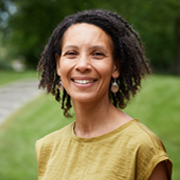Playing for keeps? Unequal players and adolescent social play in times of crisis
IMC Tuesday Seminar: Talk by Luseadra Joy McKerracher, Junior Fellow, Aarhus Institute of Advanced Studies, Aarhus University
Info about event
Time
Location
Jens Chr. Skous Vej 4, 8000 Aarhus C, building 1483, room 312 and online (https://aarhusuniversity.zoom.us/my/imcevent)

Abstract
Juvenile mammals and birds engage facultatively in social and physical play when their environmental conditions afford it. Juvenile play is hypothesized to prepare developing animals to respond to unpredictability or uncertainty (e.g. being knocked physically off-balance, negotiating with others who are trying out new social roles) with low stakes short-term consequences. Engaging in in age-appropriate forms of play is therefore predicted to offer fitness and health payoffs, so long as extrinsic mortality risk is relatively low and relatively predictable. This prediction is generally borne out empirically in both humans and in other social animals, such that individuals and groups dedicate more time to play when mortality risks are low. What happens, though, in the context of a crisis like a global pandemic, when extrinsic mortality risk increases abruptly and perceptions of mortality risk also change fairly abruptly?
In this talk, I will briefly cover some hypotheses and theory around play under different environmental conditions, including under conditions of crisis – with a particular focus on adolescent social play in humans. I will then present some case study data on inferred changes to adolescent play behaviour in the context of the first 1.5 years of the COVID-19 crisis from a project called “CANadian Teens Experiencing COVID-19 (CANTEC-19)”. These data show some striking inequities in which adolescents have opportunities to play under crisis conditions, and also hint at some positive associations between engagement in adolescent play during the pandemic and at least short-term indicators of health, health behaviours, and social wellbeing. I will wrap up the talk by speculating both on implications for thinking about human behavioural evolution and on possible implications or applications for public health.
About the speaker
Luseadra Joy McKerracher is currently a Junior Fellow at the Aarhus Institute for Advanced Studies and an Incoming Assistant Professor at the Department for Public Health, both at Aarhus University. Her main research foci concern social factors that affect health and nutrition just before, during, and immediately after pregnancy. In this vein, she currently leads a project called “Supporting Pregnancy fOOd and Nutrition Security (SPOONS) in Denmark’s marginalized neighbourhoods”, and is a co-investigator on a number of other projects – most notably the Art of Creation Project – aimed at supporting nutrition and health at critical periods in the human life course in equity-seeking populations in Canada, Denmark, and Guatemala. You can check out her latest academic publications here.
